Dentures Midlothian
Recapture Your Smile with Reliable Dentures
At Dental Center of Midlothian, Dr. Johnson takes pride in providing top-of-the-line services for patients suffering from tooth loss. If you are living with an entire row of missing teeth and no longer want to feel embarrassed by your smile, it’s time to consider how dentures in Midlothian can help you embrace a better quality of life. With a restored smile, you will once again be able to eat, speak, and smile with confidence. No longer will you need to forgo social gatherings once your new and improved teeth are in place. Contact us today to find out if you are eligible for full or partial dentures in Midlothian and what steps you need to take to see a complete and fully functional smile.
Why Choose Dental Center of Midlothian for Dentures?
- High-Quality Dental Materials Used for Reliable Prosthetics
- State-of-the-Art Facility with Advanced Dental Technology
- Dental Insurance Welcome and Financing Available
Who is a Good Candidate for Dentures?

Missing teeth can leave you feeling self-conscious about your smile. They can also make it harder to eat your favorite foods and speak with clarity. Fortunately, with full or partial dentures, you can change all that! If you’re not missing all your teeth along the upper or lower arch of your mouth, you can find help with a partial denture or alternative solution (i.e., dental bridge). However, if you no longer have any remaining natural teeth, full dentures can be a safe, reliable, and affordable way to restore your smile.
But before you start to move forward with treatment, it’s important that you have healthy gums to support your new dentures. This is why a scheduled consultation with your dentist in Midlothian is necessary. If you need to improve the state of your gum health, Dr. Johnson can recommend the appropriate treatments.
What Are the Different Types of Dentures?
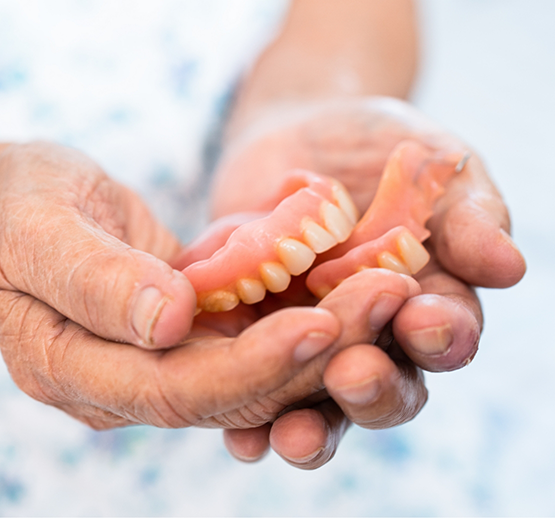
During your initial consultation with Dr. Johnson, you can expect him to recommend you for one of the following three types of dentures:
Partial Dentures
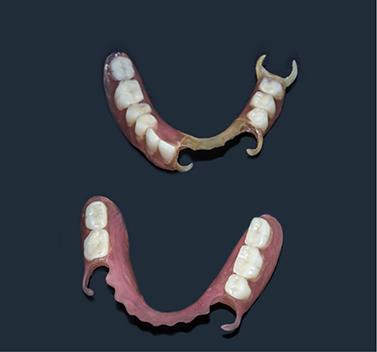
When large gaps exist within the upper or lower arch of your mouth, it can make it increasingly difficult to chew and eat certain foods. Because the teeth opposite the gaps have nothing to help with the chewing process, you may find you’re more self-conscious when trying to consume various meals. Fortunately, with a partial denture, you no longer need to worry. Created using a gum-colored, acrylic base and artificial teeth made of porcelain or ceramic, it fits into place like a puzzle piece and is anchored to your healthy teeth using metal clasps or clips.
Full Dentures
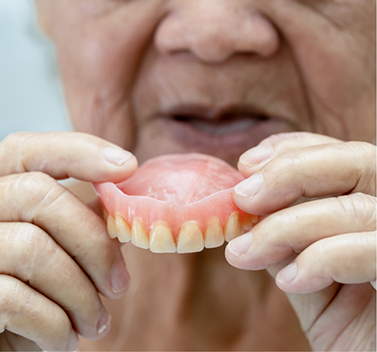
If all your teeth are missing or you require tooth extraction to remove a few remaining teeth, a full denture can easily replicate the look and functionality of your normal smile. Using the same materials as a partial denture, the only difference is that it sits on top of your gums and is held into place using your natural suction. Some individuals prefer to buy dental adhesive to help provide another layer of security, especially when eating or speaking.
Implant Dentures
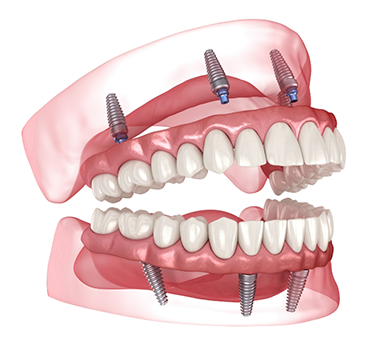
With implant dentures, you can expect a permanent, fully functional, and more stable prosthetic. Instead of relying on your natural suction or metal clasps, an implant partial attaches to two or more dental implants while a full denture attaches to between 4 and 8 dental implants. These titanium posts are surgically placed into your jawbone to create a solid, firm foundation for your customized denture. Not only can these posts remain in place for 30 years or more, but they strengthen your bite force and continuously stimulate your jawbone.
The Benefits of Dentures

As you might guess, missing multiple teeth can make life difficult. The condition often interferes with everyday tasks – eating, speaking, smiling, etc. Thankfully, you can trust dentures as an effective and worthwhile solution. These dental prosthetics will restore your smile and thus raise your quality of life. If you’d like to learn the concrete benefits of dentures, our practice will tell you more. To that end, just keep reading or call us for the details.
Psychological Benefits

For many people, tooth loss is hard to accept. (Lacking a full smile, after all, can be unnerving.) This condition thus tends to lower one’s self-esteem and body image. From there, it often leads to feelings of anxiety and sadness. You might even suffer depression as a result.
Still, you could avoid these outcomes with dentures. They’d restore your smile and boost your confidence in yourself. You’d then feel calmer among friends and family, assured in how you look, eat, speak, and more.
Clearer Enunciation

Speech is (understandably) hard when you lack teeth. Without a complete smile, you can’t position your lips and tongue to talk well. Attempts to do so will typically lead to speech impediments.
Of course, dentures can (and do) act as substitute teeth. Therefore, you can rely on them to enunciate words clearly. That said, you will need time to adjust first. Speaking with dentures naturally takes practice.
Improves Nutrition

If you don’t have all your teeth, meals become rather tricky. That’s only natural – a full set of pearly whites helps you chew even the toughest foods. When you’re missing any, items with tough textures can be nearly impossible to chew. Consequently, tooth loss can prompt a restriction in your diet. Should that happen, you’d likely suffer malnutrition or indigestion.
Luckily, dentures can prevent these situations. Their artificial teeth are durable, allowing them to chew food almost as well as natural ones. This means the prosthetics will widen your dietary choices, improving nutritional health.
Preserves Oral Health
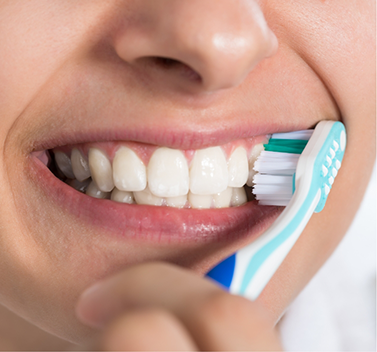
Tooth loss doesn’t just hurt your mouth’s looks; it also harms your actual oral health.
You see, it all comes down to the resulting smile gaps. These spaces between teeth allow harmful germs to grow, causing gum disease and similar problems. Furthermore, they gradually tilt surrounding teeth until the latter ones fall out.
Fortunately, dentures protect your mouth by “filling in” your smile gaps. No space between teeth means bacteria won’t have a chance to multiply. Also, closing the gaps will keep your other chompers from tilting.
Expands Opportunities

Like others, you may know that smiles are crucial to a good first impression. A gorgeous grin can make the difference between a smooth interaction and an awkward one. As such, gleaming teeth will usually expand your social and career-related opportunities. They’d then lead to quick but noticeable improvements in life.
It’s a good thing that dentures offer pretty pearly whites. By doing so, they can strengthen bonds with all sorts of peers. The restorations might even lead to a promotion or an increase in pay at work!
Denture FAQs
Can I Sleep with My Dentures?
Dentists will generally recommend that you take your dentures out at night when you go to bed. When you first get your dentures, you will likely be told to keep them in your mouth for 24 hours, including when you sleep, but after this, you should be taking them out each evening. This is because wearing dentures restricts the circulation in your gums, leading to soft tissue irritation and potentially speeding up ridge resorption. Taking dentures out gives the gums a chance to recover and get the nutrients they need during the night. The dark, moist space underneath the dentures is an ideal place for bacteria to thrive. Because of this, sleeping with dentures is associated with a higher risk of pneumonia.
Is It Hard to Talk with Dentures?
When you first get dentures, it takes some time to get used to speaking with them. The adjustment phase will vary from person to person, but generally speaking, the more you practice, the faster the adjustment process will go. You might have a lisp with dentures at first due to changes in your palate. Once you learn to adjust, the lisp will go away. Just like other tasks, practice makes perfect. Try reading aloud to yourself and repeating difficult-to-pronounce words. Speak slowly at first, as fast speech may come out muffled. You’ll be talking away just like you used to in no time!
Why Do My Dentures Smell?
Bacteria can become trapped in the various nooks and crannies of your dentures, especially if they don’t fit properly. Ill-fitting dentures irritate the gum tissue, which can lead to sores and infections that contribute to bad breath. People who wear dentures also tend to produce less saliva, which can lead to dry mouth, allowing harmful bacteria to thrive and cause bad breath. To prevent this, clean your dentures every day with a soft-bristled toothbrush and a specialized cleaner. Also brush your entire mouth, including your gums, tongue, cheeks, and palate. Soak your dentures in a disinfecting solution every night and rinse them after each meal. By ridding your dentures of food particles and bacteria, you will have a fresher smile.
Can You Still Eat Steak with Dentures?
Tougher meats, like steak, are often difficult to chew with dentures, but it’s still possible if you take all the right precautions. Pick out tenderloin and other beef cuts that don’t contain as many connective tissues or muscle fibers. Make sure that your meat is thoroughly tenderized beforehand and cut it into very small, manageable pieces. The smaller they are, the easier it will be for you to chew.
